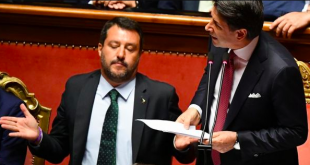Earlier this month, the Law Commission of India published a 145-page report that recommended the licensing and regulating of gambling in the vast South Asian nation, as a way of curbing the rise of online betting activity. We caught up with two of the sports betting world’s most respected legal figures, Giulio Coraggio and Vincenzo Giuffre of DLA Piper, to find out more.
SBC: Hi guys. Firstly, for those who are uninitiated, can you explain what the current legal situation is in India with regards to gambling and sports betting?
GC & VG: Whilst betting and gambling are state subjects, there still exist some provisions of central legislation. The first public Gambling Act was enabled in 1867. The 1867 Act was primarily enacted with the purpose of punishing public gambling and the keeping of common gaming houses. In 1935, the Government of India Act listed all matters pertaining to betting and gambling under Entry 36 of the List II (Provincial legislative List). Accordingly, the provincial legislatures alone were authorised to enact laws pertaining to betting and gambling and the Constitution of India adopted the same classification. After 1935, the Public gambling Act ceased to be a central legislation, such that it was no longer a law applicable to the whole of the territory of India.
In relation to online gaming, “The Sikkim Online Gaming Regulation Act” 2008 is the first Indian legislation to expressly permit and regulate online gaming providing that only some games may be operated and played under a licence obtained from the state government, which include roulette, poker, bingo, blackjack, etc. The Government of Sikkim, however, restricted the offering of online games and sport games to the physical premises through intranet gaming terminals within the geographical boundaries of the state. Therefore, gambling in India is heavily restricted except for selective categories including lotteries and horse racing.
In 2016, the Supreme Court in the case Board of Control for Cricket in India v. Cricket Association of Bihar & Ors.,8 SCC 535 mandated the Law Commission of India to study the possibility of legalising betting in India providing the following “[… ] the recommendation made by the Committee that betting should be legalised by law, involves the enactment of a Law which is a matter that may be examined by the Law Commission and the Government for such action as it may consider necessary in the facts and circumstances of the case“.
SBC: Why has the Law Commission of India recommended the adoption of a legal framework on gambling and sports betting?
GC & VG: The Commission has issued an appeal dated 30 May 2017 asking stakeholders, operators, organisations and the public to identify the possibility of legalising betting in India and its positive and negative implications. The Law Commission – after receiving numerous responses from various stakeholders, including state governments – held that shutting down illegal gambling and enforcing a ban on sports betting had failed to produce the desired results, leading instead to an increase in illegal gambling and money laundering activities. To this end, the Law Commission Report also recommends that gambling services should be offered only by licensed Indian operators who would be granted licenses by the regulatory authority, as applicable mostly worldwide. The Commission has also concluded that such a move will generate profitable revenues which can be used for social welfare.
SBC: In the Law Commission of India’s recent report, they suggest that gambling should be classified into two distinct categories – “proper gambling” and “small gambling”. What is the relevance of this categorisation?
GC & VG: According to the law commission report, “proper gambling” would be characterised by higher stakes and only individuals belonging to the higher income group shall be permitted to operate in this market. On the contrary, individuals belonging to lower income groups shall not be permitted to stake high amounts: “small gambling”. We are concerned that this kind of separation will hardly lead to the desired goal i.e. limit problem gamblers comparing proportionally their income. Operators should focus on the safety and protection of players, without quantitative distinction, bearing in mind that problem gambling is a social issue hardly ever linked to rationale and so almost never related to players’ income.
SBC: Going on the evidence available to you, do you believe this framework will be written into law? If so, what kind of time-frame should we expect?
GC & VG: It is quite difficult to predict the outcome of this framework, also considering the fact that gambling in India has been restricted for several decades, taking into account that most states still prioritise social morality over revenue collection. Conversely, the incapability to enforce a complete ban has resulted in a steady increase of illegal gambling and money laundering activities. Therefore, regulating gambling and betting resembles the only viable option.
The framework could still maintain the structure of a bilateral set of regulations: state and federal ones. Parliament may enact a model law for regulating gambling that – as suggested by the Law Commission – may be adopted by the states or, alternatively, may constitute a recommendation to take into consideration. In terms of content of the framework: (i) the license regime could represent a valid example to follow; (ii) the advertising shall lead to a social responsible advertising both via television-media and via the Internet; (iii) the national Sports Development Code of India 2011, which aims to prevent betting and gambling in sports after several episodes of spot-fixing and match-fixing, should be amended accordingly to the new legislation coming into force; (iv) encouraging cashless transaction in terms of preventing money laundering and supervising all transactions at stake; (v) create a tax reform that will redistribute any income derived from such activities.
Access Coraggio’s Gaming Tech Law blog here.









